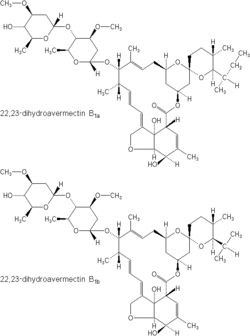More than 6 million people in over 30 countries have been treated with ivermectin to control onchocerciasis (river blindness). Recent studies suggest that ivermectin also may be effective in patients with scabies infestation. Meinking and colleagues conducted an open-label study to evaluate the effectiveness of ivermectin in the treatment of scabies.
A single oral dose of ivermectin, 200 [mu]g per kg, was given to 11 otherwise healthy patients with scabies and to 11 patients with scabies and human immunodeficiency virus (HIV) infection, seven of whom had the diagnosis of acquired immunodeficiency syndrome. All of the patients had skin scrapings that were initially positive for scabies. Study subjects were reexamined and had repeat skin tests at two weeks and four weeks after treatment.
None of the otherwise healthy subjects and three of the 11 patients with HIV infection had evidence of scabies after receiving the single dose of ivermectin. Two of the remaining three HIV-positive patients required a second dose two weeks after the first treatment and were cured by the four-week follow-up visit. The remaining case, complicated by concomitant mite infestation, was successfully treated after a third dose of oral ivermectin and a total body treatment with topical 5 percent permethrin cream.
The authors conclude that a single dose of oral ivermectin is an effective treatment for scabies in otherwise healthy persons and in many persons with HIV infection. (New England Journal of Medicine, July 6, 1995, vol.333, p. 26.)
COPYRIGHT 1995 American Academy of Family Physicians
COPYRIGHT 2004 Gale Group



